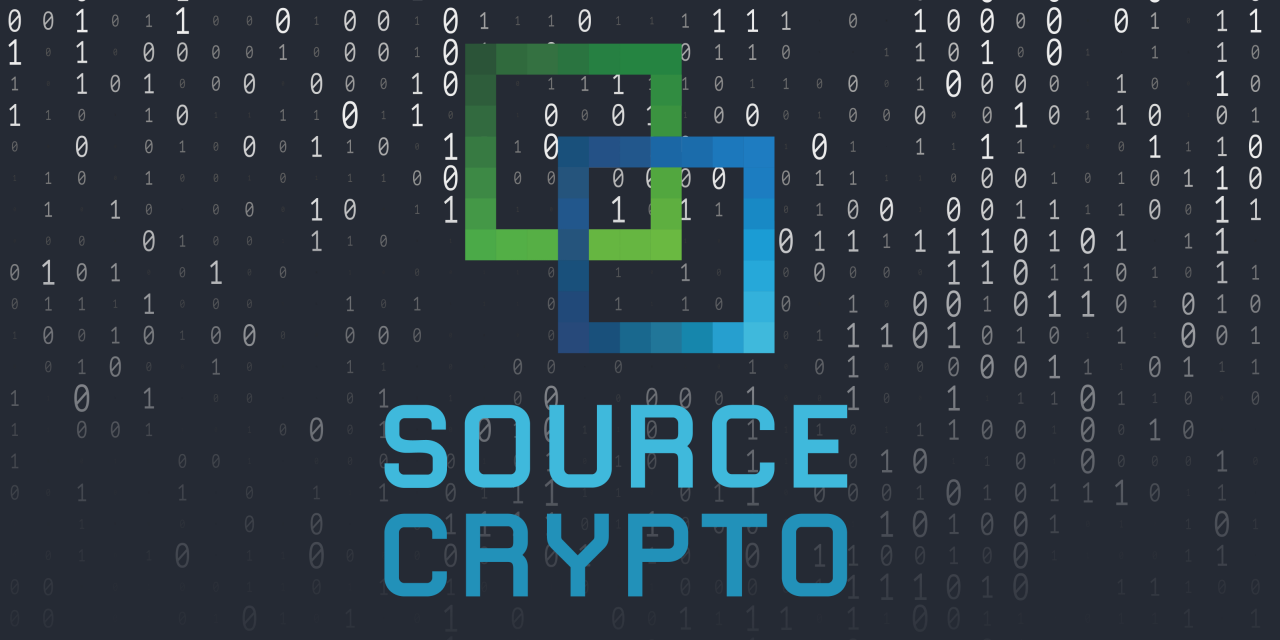Cypherpunks and the Crypto Wars
Crypto Wars and PGP
- Birth of Cypherpunks: Short
- wiki.openrightsgroup.org/wiki/Crypto_Wars
- wikipedia.org/wiki/Crypto_Wars
-
Untold History of Blockchain
- Phil Zimmerman creates PGP(‘91), the first publicly available encryption allowing people to communicate using 128-bit encryption and Diffie-Hellman for key management. Zimmerman published PGP code in book form to strengthen its case as freedom ofspeech.
- Open Source software development
- Peer to peer sharing
-
Crypto Wars, Phil Zimmermann and PGP
Phil Zimmermann was a key player in this period. The PGP software he authored was considered as munitions by the US government and subject to export licenses. The US government at this time was keen to avoid strong crypto falling into the hands of civilians and foreign governments. At this time the US government was also pushing for specialised key-escrowed chips that would perform encryption, but make the plaintext readable to NSA if necessary. This was rightly considered a gross violation of privacy, rights, and a huge security hole by the cypherpunks.
- Why I Wrote PGP -Part of the Original 1991 PGP User’s Guide
-
Defending the last missing pixels: Phil Zimmermann speaks out on encryption, privacy, and avoiding a surveillance state
Since writing the PGP encryption software in the 1990s, Phil Zimmermann has been a key figure in the internet privacy debate. With that argument heating up again, his perspective is more relevant than ever.
-
Bernstein vs US Dept of Justice (Decided in ‘96)
While a graduate student at the University of California at Berkeley, Bernstein completed the development of an encryption equation (an “algorithm”) he calls “Snuffle.” Bernstein wishes to publish a) the algorithm (b) a mathematical paper describing and explaining the algorithm and (c) the “source code” for a computer program that incorporates the algorithm. Bernstein also wishes to discuss these items at mathematical conferences, college classrooms and other open public meetings. The Arms Export Control Act and the International Traffic in Arms Regulations (the ITAR regulatory scheme) required Bernstein to submit his ideas about cryptography to the government for review, to register as an arms dealer, and to apply for and obtain from the government a license to publish his ideas. Failure to do so would result in severe civil and criminal penalties. Bernstein believes this is a violation of his First Amendment rights and has sued the government.
-
Code Wars — How ‘Ultra’ and ‘Magic’ Led to Allied Victory
When the top secret code breaking activities at Bletchley Park were revealed in the 1970s, much of the history of the Second World War had to be rewritten. Code Wars examines the role of ULTRA (the intelligence derived from breaking secret enemy signals) on major events of the Second World War. It examines how it influenced the outcome of key battles such as D-Day, El Alamein, Crete, key naval battles, the controversy surrounding Churchill and Coventry, the shadowing of Hitler’s V1 pilotless aircraft and the V2 rocket.
- ‘Crypto Wars’ topic on VICE
- Cypher Wars - Pretty Good Privacy Gets Pretty Legal
-
Steven Levy | WIRED
Steven Levy is Editor at Large on WIRED. Read Steven Levy’s bio and get latest news stories and articles. Connect with users and join the conversation at WIRED.
- U.S. Export Controls on Encryption Technology by Shirley K. Hung A.B. Government Harvard College, 2000
- Mark Miller and the Decades long quest for Smart Contracts mark miller tells of fighting for the freedom of RSA paper
- (PDF) Crypto - How the Code Rebels Beat the Government - Saving Privacy in the Digital Age
-
Export of cryptography from the United States
The export of cryptographic technology and devices from the United States was severely restricted by U.S. law until 1992, but was gradually eased until 2000; some restrictions still remain. Since World War II, many governments, including the U.S. and its NATO allies, have reg…
-
Statement of Louis J. Freeh, Director FBI - Before the Senate Judiciary Committee July 9, 1997
The looming spectre of the widespread use of robust, virtually uncrackable encryption is one of the most difficult problems confronting law enforcement as the next century approaches.
- https://cryptome.org/cryptome-2016-1996.htm
- http://www.mattblaze.org/papers
-
[Attorney General will ask Zuckerberg to halt plans for end-to-end encryption Hacker News](https://news.ycombinator.com/item?id=21149744) -
Eva (@evacide)
I do not want your encryption backdoors I do not want them in a box I do not want them with a fox I do not want them here or there I do not want them anywhere
- Encryption Export Controls: International Traffic in Arms Regulations (ITAR)
-
Clipper Chick
Changing sides in the government’s war against piracy, Dorothy Denning went from hacker hero to one of the most hated people on the Net.
-
An Interview with MARTIN HELLMAN
Leading cryptography scholar Martin Hellman begins by discussing his developing interest in cryptography, factors underlying his decision to do academic research in this area, and the circumstances and fundamental insights of his invention of public key cryptography with collaborators Whitfield Diffie and Ralph Merkle at Stanford University in the mid-1970s. He also relates his subsequent work in cryptography with Steve Pohlig (the Pohlig-Hellman system) and others. Hellman addresses his involvement with and the broader context of the debate about the federal government’s cryptography policy—regarding to the National Security Agency’s (NSA) early efforts to contain and discourage academic work in the field, the Department of Commerce’s encryption export restrictions (under the International Traffic of Arms Regulation, or ITAR), and key escrow (the so-called Clipper chip). He also touches on the commercialization of cryptography with RSA Data Security and VeriSign, as well as indicates some important individuals in academe and industry who have not received proper credit for their accomplishments in the field of cryptography.
-
NSA Backdoor Key from Lotus-Notes
Before the US crypto export regulations were finally disolved the export version of Lotus Notes used to include a key escrow / backdoor feature called differential cryptography. The idea was that they got permission to export 64 bit crypto if 24 of those bits were encrypted for the NSA’s public key. The NSA would then only have the small matter of brute-forcing the remaining 40 bits to get the plaintext, and everyone else would get a not-that-great 64 bit key space (which probably already back then NSA would have had the compute power to brute force also, only at higher cost).
- Computers, Freedom and Privacy - citizendum wiki - homepage
Cypherpunk Mailinglist
* Resources roughly in historical order, either by date of publication or story told.
-
Cypherpunks, Bitcoin & the Myth of Satoshi Nakamoto (‘13)
The Cypherpunks began properly in 1992 when Tim May, Eric Hughes and John Gilmore, started the Cypherpunks’ mailing list. But Jim Bell, David Chaum, Phil Zimmerman, Julian Assange, Adam Back, Wei-Dai and Hal Finney are just a few of the ciphers on the mailing list who are just now becoming luminaries, because they’ve all contributed something so uniquely valuable to us through their efforts to protect our privacy in the new information economy, particularly against the encroaching financial surveillance complex (typified by FATCA).
Other names, like Tim-Berners Lee, John Perry Barlow and Nick Szabo also feature in this essay, as ‘Cypherpunks by proxy’ because of their contributions and their philosophy. -
The Crypto Anarchist Manifesto
- A specter is haunting the modern world, the specter of crypto anarchy.
Computer technology is on the verge of providing the ability for individuals and groups to communicate and interact with each other in a totally anonymous manner. -Timothy C. May (‘92)
- A specter is haunting the modern world, the specter of crypto anarchy.
-
A Cypherpunk’s Manifesto Eric Hughes (‘93) - CRYPTOQUIKREAD_163
Privacy is necessary for an open society in the electronic age. Privacy is not secrecy. A private matter is something one doesn’t want the whole world to know, but a secret matter is something one doesn’t want anybody to know. Privacy is the power to selectively reveal oneself to the world.”
- Wired - Crypto Rebels (‘93) - Deep Cut
- THE CYPHERNOMICON: Cypherpunks FAQ and More - 1994 - Tim May[ϟ]
- https://mailing-list-archive.cryptoanarchy.wiki/
- https://twitter.com/todayininfosec/status/1171152789986140160?s=12
-
Today In Infosec (@todayininfosec)
1994: Code for the RC4 stream cipher, previously a trade secret, was anonymously posted to the Cypherpunks mailing list.
- https://lists.cpunks.org/pipermail/cypherpunks/
- mervyn-mccreight/remailer-seminar
- https://github.com/tim54000/cypherpunk-cli
- tim54000/cypherpunk-cli -A new-gen CLI tool for cypherpunk remailer.
Cypherpunks
-
Jameson Lopp (@lopp)
The cost of maintaining one’s privacy continues to rise as the cost of surveillance technology continues to fall. Most folks have neither the time nor the money to properly protect their privacy these days. Cypherpunks are the intolerant minority, the Spartans defending th…
- Bitcoin and the Rise of the Cypherpunks - CoinDesk CoinDesk contributor Jameson Lopp traces the history of the cypherpunks, the band of innovators whose beliefs helped inspire the bitcoin movement.
-
Cypherpunk rising: WikiLeaks, encryption, and the coming surveilla…
In 1989, when the internet was predominantly ASCII-based and HyperCard had yet to give birth (or at least act as a midwife) to the world wide web, R.U. Sirius launched Mondo 2000. “I’d say it was…
-
Cypherpunk Essentials: A Beginner’s Guide to Crypto Privacy - Th…
The following op-ed on crypto privacy was written by Reuben Yap. He is the Chief Operations Officer of Zcoin. A corporate lawyer for ten years, specializing in institutional frameworks, Reuben founded one of SE Asia’s top VPN companies, bolehvpn.net. He graduated with a LL…
- The untold history of Bitcoin: Enter the Cypherpunks In my previous article I addressed the underlying technologies that blockchain runs and the history behind how it all started. The primary…
-
Nick Szabo 🔑 (@NickSzabo4)
@CobraBitcoinCsh My bit gold design in 1998 was 2-layer: bit gold for settlement, Chaumian e-cash for a privacy-enhanced payments layer. I’ve always thought of Bitcoin as evolving into a settlements-and-large-payments layer that in the long term needed a layer 2 for consu…
- Untold History of Bitcoin: Enter the Cypherpunks
- Cypherpunks and the failure of the Centralized Web
- The Crypto-Anarchists by Brian Zuzga (‘94)
-
Privacy-enhancing technologies for the Internet by Ian Goldberg David Wagner Eric Brewer (‘96)
The increased use of the Internet for everyday activities is bringing new threats to personal privacy. This paper gives an overview of existing and potential privacy enhancing technologies for the Internet, as well as motivation and challenges for future work in this field
- R.I.P. Cypherpunks (‘01)
- Crypto Anarchy, Cyberstates, and Pirate Utopias
- RU Sirius on the history of cypherpunk
- Cypherpunks Write Code ϟ (‘15)
- An Introduction to the Cypherpunk Tale
-
Bitcoin and the rise of the Cypherpunks by Jameson Lopp (‘16) - CryptoQuikRead_034
- 1980s, Dr David Chaum
- late 1992, Eric Hughes, Timothy C May, and John Gilmore founded cypherpunks
- The Cypherpunks mailing list was formed, and a few months later, Eric Hughes published “A Cypherpunk’s Manifesto“.
“Privacy is necessary for an open society in the electronic age. Privacy is not secrecy. A private matter is something one doesn’t want the whole world to know, but a secret matter is something one doesn’t want anybody to know. Privacy is the power to selectively reveal oneself to the world.”
- Notable Cypherpunks:
- Jacob Appelbaum: Tor developer
- Julian Assange: Founder of WikiLeaks
- Dr Adam Back: Inventor of Hashcash, co-founder of Blockstream
- Bram Cohen: Creator of BitTorrent
- Hal Finney: Main author of PGP 2.0, creator of Reusable Proof of Work
- Tim Hudson: Co-author of SSLeay, the precursor to OpenSSL
- Paul Kocher: Co-author of SSL 3.0
- Moxie Marlinspike: Founder of Open Whisper Systems (developer of Signal)
- Steven Schear: Creator of the concept of the “warrant canary”
- Bruce Schneier: Well-known security author
- Zooko Wilcox-O’Hearn: DigiCash developer, Founder of Zcash
- Philip Zimmermann: Creator of PGP 1.0
- In 1997, Dr Adam Back created Hashcash
- Later in 1998, Wei Dai published a proposal for “b-money”,
Video \ Audio
- Blockchain at Berkeley
- Bitcoin History: From the Cypherpunk Movement to JPMorgan Chase - Cryptocurrency Decal Fall 2016 Lecturers: Andrew Tu and Max Fang
- Kimotho Kamau (@kimothokk) @nlw The cypherphunks series by @JWWeatherman_ where he interviews the legendary Timothy C May, author of the Crypto-Anarchist Manifesto. A classic narration of the origins of Bitcoin and other cryptography tools. It surely deserves more than 1.1k views on YT
- Cypherpunk Interviews - YouTube
- CryptoQuikRead_162 - The Untold History of Bitcoin, Enter The Cypherpunks
- CryptoQuikRead_163 - A Cypherpunk’s Manifesto
- CryptoQuikRead_174 - @real_vijay on How Cypherpunks Changed Economics for the Digital Age
Modern Crypto Wars
- The Crypto Wars Are Over! (‘05)
- Crypto Wars: The Tech World vs. the NSA (‘13)
- The NSA is Making Us All Less Safe
- A complete guide to the new ‘Crypto Wars’
Books
What follows is a list of books that were influential upon early cypherpunks. As time goes on, I’ll add more modern material. Also, Cypherpunk is an offshoot of Cyberpunk, as such, there is much overlapp in the culture and cyberpunk literature should be of interest to those trying to delve into the cypherpunk mythos.
-
Cyberpunk and Cyberculture: Science Fiction and the Work of William Gibson. ^^^ Really excellent literary review!
- Crypto, by Steven Levy - Pre-History from the 50’s up to the cypherpunk era.
- May’s Recommended readings, from cyphernomicon.
- 1984 by George Orwell ‘49
- Atlas Shrugged by Ayn Rand ‘57
- Machinery of Freedom by David Friedman ‘73
- The Shockwave Rider by John Brunner ‘75
- True Names by Vernor Vinge ‘81
- Security without Identification: Transaction Systems to Make Big Brother Obsolete ‘85
- Advances in Cryptology by Gilles Brassard ‘90
- Snow Crash, Neil Stephenson ‘92
- Applied Cryptography by Bruce Schneier ‘93
-
Cyberspace Crypto-Anarchy and Pushing Limits — Tim May
many of us have found Vernor Vinge’s “True Names” to be an excellent (and quickly readable) treatment of how things could work in a world of fast, cheap, and secure communication. Other writers have seen things differently (e.g., “Shockwave Rider,” “1984,”,”Snow Crash”). \
- The Essential Cyberpunk Reading List ‘15
- Neuromancer by William Gibson
- Cryptonomicon - Neil Stephenson
- The Diamond Age - Neil Stephenson
-
Cypherpunk book recommendations
I’ve been on a sci-fi kick for a while and recently picked up Snow Crash. Fantastic so far and it made me wonder what other cypher/cyber punk novels are out there that the ethereum community might recommend. So… anyone have any recommendations on what to read next?
-
A History of Cryptography and the Rise of the CypherPunks #Reading_list
An excellent history of public-key cryptography and the Cypherpunk Phenomena appears in The cypherpunk revolution a Christian Science Monitor project from July 2016.
The best history of digital cash is Cryptocurrency: How Bitcoin and the Blockchain Are Challenging the Global Economic Order by Michael J. Casey and Paul Vigna. Sadly that book; which appeared in 2015 is already dated, but it is still an eye opener.
There are many excellent books about cryptography and codebreaking in World War II. One of the best is Code Girls by Liza Mundy, which explores the origins of the NSA and American cryptography. Still worth reading is Ronald Lewin’s Ultra Goes to War: The Secret Story; which first publicized the role encryption played in World War II back in 1977.
- https://futurism.media/must-read-cyberpunk-books
- The First True Cypherpunk Novel Two generations of swashbuckling geeks tackle the forces of evil. Call it hip, call it funny. But you can’t call it light summer reading. Declan McCullagh reviews Neal Stephenson’s Cryptonomicon.
- The cypherpunk revolution Thomas Rid, cybersecurity expert and author of “Rise of the Machines,” chronicles the early history of cypherpunks and how they helped turn public-key cryptography into one of the most potent political ideas of the 21st century.
For more cypherpunk books check out goodreads.
💀 Payments
- 1995-09-25 - Electronic Commerce - mailing-list-archive.cryptoanarchy.wiki/archive/1995/09/
- 1994-08-19 - Attention Shoppers: Internet Is Open (NYT, 12Aug94) - mailing-list-archive.cryptoanarchy.wiki/archive/1994/08/
- 1995-01-02 - Re: Anonymous payment scheme
💀 Prediction Markets
💀 Wikileaks
- https://www.pcworld.com/article/212507/wikileaks_vows_never_die.html
-
WikiLeaks Vows to Never Say Die With 355 New Websites
WikiLeaks has asked the Web community to open mirror sites so it cannot be downed or censored and said Monday that 355 new sites are already up.
- Operation Payback: WikiLeaks Avenged by Hacktivists A hacktivist organization known as Anonymous is coming to WikiLeaks’ defense with a botnet DDoS attack against PayPal and others.
- WikiLeaks.org Downed by Domain Hosting Service WikiLeaks’ main website could not be accessed on Friday through its WikiLeaks.org domain name after a subsidiary of Dynamic Network Services terminated its…
- Pirate DNS Could Hatch a Lawless Darknet The Pirate Bay wants a new DNS system that will be impossible to censor, but also impossible to police. Would it be worthwhile?
-
Could the Wikileaks Scandal Lead to New Virtual Currency?
The Wikileaks fiasco is shaking the foundations of the Internet and might be boosting the popularity of a virtual currency system that’s impossible to police.
- NSA Said to Have Used Heartbleed Bug for at Least Two Years (2014) - ycombinator thread
-
Latest Snowden leak reveals the NSA intercepted and bugged Cisco routers
As promised, the release of Glenn Greenwald’s new book, No Place to Hide, has brought plenty more Snowden leaks, and one document is particularly mind-blowing…
- We Steal Secrets: The Story of Wikileaks” annotated transcript - 19:00 GMT, May 23, 2013
-
Perspective: With Laura Poitras’ re-cut ‘Risk,’ a director controv…
The story of WikiLeaks founder Julian Assange has been as compelling and Shakespearean as any in modern media.
-
Cypherpunk rising: WikiLeaks, encryption, and the coming surveillance dystopia
- EARLY CYPHERPUNK IN FACT AND FICTION. CYPHERPUNK WAS BOTH AN EXCITING NEW VISION FOR SOCIAL CHANGE AND A FUN SUBCULTURE DEDICATED TO MAKING IT HAPPEN
Flashback: Berkeley, California 1992. I pick up the ringing phone. My writing partner, St. Jude Milhon, is shouting down the line: ‘I’ve got it! Cypherpunk!’
- EARLY CYPHERPUNK IN FACT AND FICTION. CYPHERPUNK WAS BOTH AN EXCITING NEW VISION FOR SOCIAL CHANGE AND A FUN SUBCULTURE DEDICATED TO MAKING IT HAPPEN
- Cypherpunk the Origin of Wikileaks
- This Machine Kills Secrets: How WikiLeakers, Cypherpunks, and Hacktivists Aim to Free the World’s Information. by Andy Greenberg. Virgin Books, London, 2012 Book Review by Harry Halpin
- No more secrets! Cypherpunks, WikiLeaks, and the new era of total surveillance https://cryptome.org/0001/assange-cpunks.htm
- This Machine Kills Secrets: How WikiLeakers, Cypherpunks, and Hacktivists Aim to Free the World’s Information, by Andy Greenberg ‘12
Resources
-
cypherpunk—research
“This repository is essentially for compiling information about Cypherpunks, the history of the movement, and the people/events of note.”
- cryptoanarchy.wiki - archive Crypto Anarchy: Encryption, digital money, anonymous networks, digital pseudonyms, zero knowledge, reputations, information markets, black markets, collapse of governments.
- Activism: Cypherpunks “Cypherpunks write code.”
- cypherpunks.to - archive a center for research and development of cypherpunk projects such as remailers, anonymous peer-to-peer services, secure network tunnels, mobile voice encryption, untraceable electronic cash, secure operating environments, etc.
- bitcoinwiki.org/wiki/Cypherpunk
- citizendium.org/wiki/Cypherpunk
- Mirror of Cypherpunkd radio series
-
nakamotoinstitute.org/literature/
Bitcoin was not forged in a vacuum. These works serve to contextualize Bitcoin into the broader story of cryptography and freedom.
- reiver/blockchain-reading-list - this list has a bunch of the early essential blockchain reading
- Jameson Lopp
- activism.net/cypherpunk/manifesto.html -Crypto Quickread
- cryptoanarchy.wiki
- https://nakamotoinstitute.org/static/docs/cyphernomicon.txt
-
tombusby/cypherpunk-research#technical-
This repository is essentially for compiling information about Cypherpunks, the history of the movement, and the people/events of note. -
- cypherpunks.venona.com - archive.org/web/20020730044602/http://cypherpunks.venona.com:80/date/1993/08/msg00538.html
Non-English
Edit this page
Social Share
Twitter Facebook LinkedIn Reddit
Tips Welcome
| Bitcoin | DOGE |
|---|---|
| 1A1DZfw4VgpHCgnMjnmfDnMjddKf8xdYbd | DQKkzfJjqnXUD8Z7C3e84vKzvghPe9dXSa |
 |
 |







